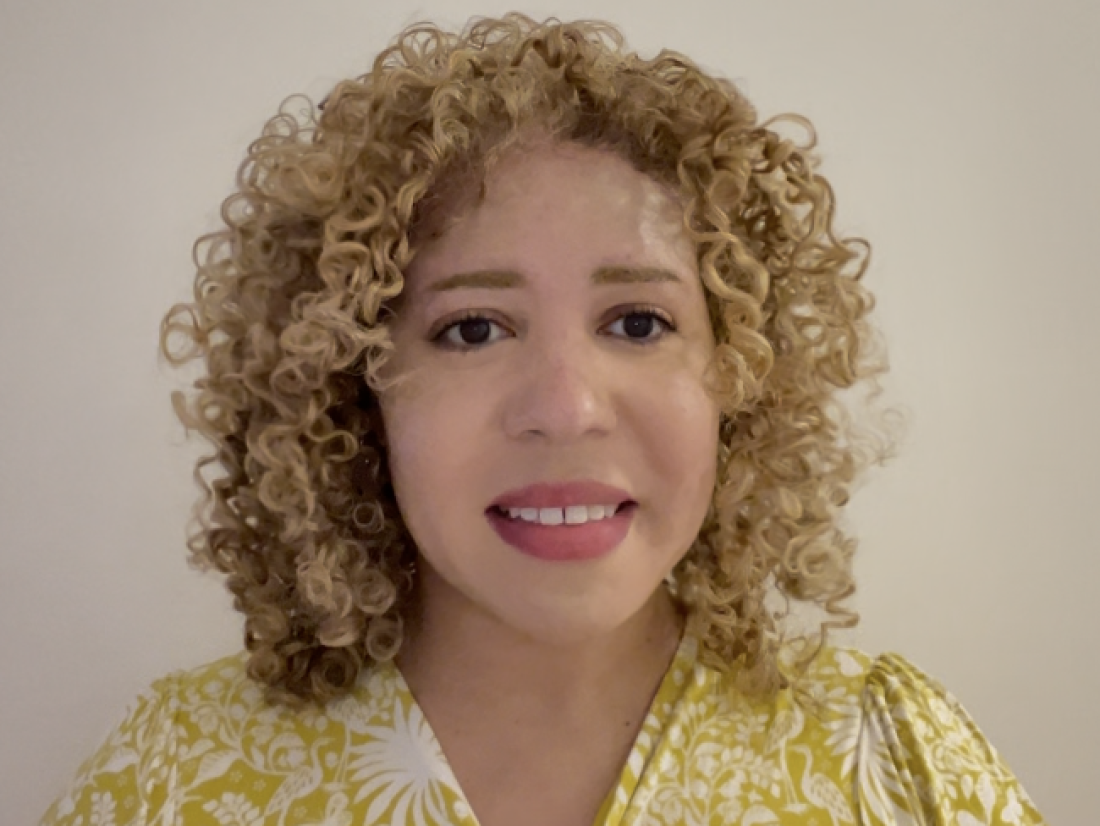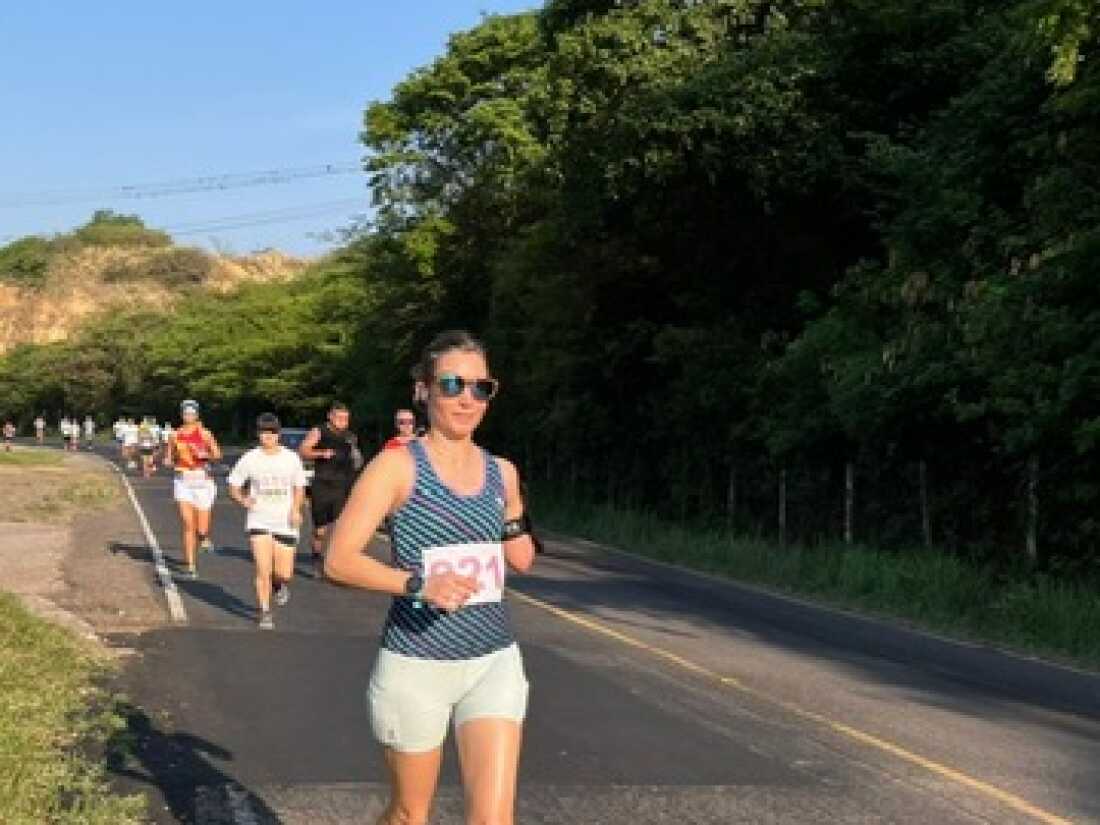
Practically 300 readers shared their incapacity tales with NPR. That is what they need you to find out about residing with a incapacity.
Courtesy of Laura Williams, Hannah Soyer, Denise DiNoto, Marty Slighte, Kristen Bettega, Rami Ungar, Mike Fitzsimmons, Sara Burback, Kathy Hyde and Rebekah Taussig.
disguise caption
toggle caption
Courtesy of Laura Williams, Hannah Soyer, Denise DiNoto, Marty Slighte, Kristen Bettega, Rami Ungar, Mike Fitzsimmons, Sara Burback, Kathy Hyde and Rebekah Taussig.
July is Incapacity Delight Month, an occasion devoted to celebrating the distinctive strengths and contributions folks with disabilities have made to society. Within the U.S., the celebration coincides with the anniversary of the Individuals with Disabilities Act, which was signed into regulation on July 26, 1990, by former President George H.W. Bush.
To have fun this month, we requested readers and listeners to share their experiences with incapacity. We wished to know: What’s one factor you would like folks knew about residing with a incapacity?
Overwhelmingly, you instructed us that disabilities aren’t one dimension suits all. We obtained solutions from folks with disabilities starting from the bodily to the psychological, developmental and cognitive. Practically everybody emphasised that not all disabilities are seen or instantly recognizable from somebody.
However these widespread refrains have been additionally accompanied by variations of opinion. “Remember that one person’s experience is their own, no matter their affinity groups,” Laura Williams of Philadelphia stated. “Their private, particular person actuality exists alongside the realities of tens of millions of various folks.”

Laura Williams was born with a whole congenital coronary heart block. She says, “Living with a rare, invisible, dynamic disability causes me oftentimes to think up more questions than answers.”
Courtesy Laura Williams
disguise caption
toggle caption
Courtesy Laura Williams
“Disability is vast, varied and beautiful,” Hannah Soyer of Des Moines, Iowa., stated. “My lived experience as a queer disabled woman is unique to me, as is the lived experience of every other disabled person.”
The practically 300 responses from NPR readers signify a large breadth of disabled experiences. Although nobody particular person’s story is common, these have been a number of the classes about residing with a incapacity that stood out most.

Hannah Soyer has spinal muscular atrophy, a type of muscular dystrophy and a type of paralysis.
Courtesy Hannah Soyer
disguise caption
toggle caption
Courtesy Hannah Soyer
Responses have been edited for size and readability.
It may occur to you
“I wish people were aware of how sudden it can be and how no amount of ‘healthy’ eating, exercising or wellness culture will spare you from becoming disabled,” Ariel Taranski of Memphis, Tenn., stated. Taranski obtained a postural orthostatic tachycardia syndrome (POTS) prognosis when she was 19, after years of unexplained signs. POTS is a sort of dysautonomia, which stems from dysfunction within the autonomic nervous system. “I was 14 when I first fainted, and before that, I was seemingly healthy. I played multiple sports, did theatre, and had boundless energy until, just one day, I didn’t.

Denise DiNoto has a degenerative neuromuscular illness. “It requires creativity, executive functioning skills, flexibility, and stamina,” she says.
Courtesy Denise DiNoto
disguise caption
toggle caption
Courtesy Denise DiNoto
Denise DiNoto has had a degenerative neuromuscular illness her entire life. The 50-year-old needs folks to know that “disability is not a fate worse than death. She points out that “you possibly can adapt, and you’d in the event you instantly grew to become disabled.”
“Most individuals will turn into disabled someday earlier than they die,” Marty Slighte, who has Ehlers-Danlos syndrome, said. “Disabled persons are identical to you. We’ve got hopes and desires, needs, and wishes. We love and have to be cherished.”

It took Marty Slighte 52 years to be identified with a congenital dysfunction.
Courtesy Marty Slighte
disguise caption
toggle caption
Courtesy Marty Slighte
Incapacity is a spectrum
The identical incapacity can have an effect on every particular person in another way. Even for people, a incapacity can really feel totally different day-to-day. “I have good days and bad days, sometimes with significant swings in between,” Kristen Kingzett, who has juvenile idiopathic arthritis, stated. “So, if you see a person doing something one day and they say they can’t do that same thing a different day, that doesn’t mean that they’re lying, scamming, or lazy.”

Kristen Bettega has melancholy. Even throughout her so-called “normal times,” she says melancholy is in the back of her thoughts.
Courtesy Kristen Bettega
disguise caption
toggle caption
Courtesy Kristen Bettega
“Some people have disabilities that come and go,” Kristen Bettega stated. Nobody questions that main bodily illnesses like most cancers develop after which go into remission. I want extra folks knew that different disabilities are the identical. If I would like intermittent day without work for melancholy however can work most days, that does not imply I’m faking melancholy.

Rami Ungar has autism, ADHD, anxiousness and albinism. “I honestly don’t think I really understood what living with disability was like until I got to my adult years,” he says.
Courtesy Rami Ungar
disguise caption
toggle caption
Courtesy Rami Ungar
Some readers stated that their disabilities do not all the time get in the best way of their lives. “I have a good job, I own my own home, and I’ve published five books and several short stories,” Rami Ungar of Columbus, Ohio, stated. “But if you found out I was on the spectrum, had ADHD and occasionally had anxiety attacks before all that, you might not think I was capable of doing all that. And you would be dead wrong.”

Mike Fitzsimmons grew to become the primary particular person with Spina Bifida to complete an ultramarathon in 2022.
Courtesy Mike Fitzsimmons
disguise caption
toggle caption
Courtesy Mike Fitzsimmons
Many others, like Mike Fitzsimmons, who has Spina Bifida, acknowledged their accomplishments. “I can do hard and somewhat extreme things,” he stated. “I became the first person born with Spina Bifida to finish an ultramarathon.” Nonetheless, he emphasised that he has a “major disability” that impacts every part he does “every second of every day.”
Ask us what we’re able to
“Don’t assume a deficiency or inability to do something,” Sara Burback, who was born with out a left arm, stated. “We are independent and creative in how we have adapted to a world made for able-bodied people. Just guess how fast I’m able to type with one hand on a keyboard made for people with two!”

Sara Burback was born with out a proper arm. She says there are days the place folks settle for her incapacity, and others have been she encounters ableism.
Courtesy Sara Burback/Courtesy Sara Burback
disguise caption
toggle caption
Courtesy Sara Burback/Courtesy Sara Burback
Bobbi Hague of Hobart, Wisc., was born with muscular dystrophy. “I know my limits on what I can and cannot do better than [anyone else],” Hague stated.

Kathy Hyde was born with dislocated proper hip & membership foot.
Credit score Kathy Hyde
disguise caption
toggle caption
Credit score Kathy Hyde
Nonetheless, generally folks with disabilities need and want their pals and family members to assist. “People with disabilities often ask for far less than what they need, Julie Austen of Pittsburgh said. “We might disguise or decrease our wants to assist different folks really feel comfy round us.”
So how can you be sure you’re supporting a disabled loved one? “At all times ASK,” Kathy Hyde said. She was born with a dislocated right hip and club foot and uses crutches and wheelchairs to get around. “Individuals with disabilities usually have developed methods to assist themselves that you could be not acknowledge. At all times ASK.”
We’re entire, advanced people
Many readers shared tales about how considerably their disabilities have impacted their lives. However in addition they emphasised that there is extra to them than their disabilities.

Rebekah Taussig has been paralyzed most of her life from childhood most cancers on my spinal twine.
disguise caption
toggle caption
“My disability defines me just as much and just as little as being a woman, parent or educator,” Rebekah Taussig, who has incomplete paralysis from childhood most cancers, stated. “My whole life, I’ve heard people tell me that my disability doesn’t define me — an impulse, I think, that stems from the gut belief that disability is sad or tragic — inherently negative. I’m not interested in yanking the pendulum in the other direction, insisting that disability is only sunshine and beauty. But it is deep and rich in a way that reminds me of the distinct difficulties and irreplaceable rewards of womanhood, parenting, and teaching. I think most folks understand these identities to be shaped by particular challenges and wholehearted joys. I wish they recognized the same dimension in disability.”
“Our disabilities usually are not flaws to be fastened, however integral components of our identities that form our distinctive views and strengths,” Kim Chua said. “I want folks knew that we’re not outlined solely by our disabilities. We’re entire, advanced people with desires, abilities, and contributions to make. By embracing neurodiversity and incapacity as pure variations of the human expertise, we will unlock the total potential of our society.”



